Conference Start: 3:30 pm Monday 26th May. Conference Finish: 12.15 pm Thursday 29th May (followed by lunch on-site)
Keynote Speakers
Professor Jean-Marc Ghigo
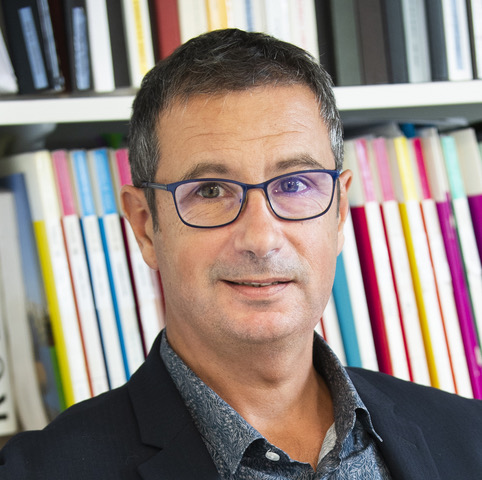
Jean-Marc Ghigo is currently professor at the Institut Pasteur in Paris and heads the Biofilm Genetics Laboratory in the Department of Microbiology. His research aims to reveal new or under-explored aspects of community-associated functions and to address three main questions: how do bacteria form biofilms? what are the properties of bacterial communities? how can we limit or control biofilm formation? His laboratory uses bacterial genetics approaches and in vitro and in vivo animal models to i) to identify factors involved in surface contacts and bacterial-bacterial interactions; ii) to study biofilm-specific physiological properties; iii) to study biofilm tolerance to biocides and design anti-biofilm strategies; iv) to study bacterial competition within mixed-species communities that contribute to colonisation resistance. These studies, often involving national and international collaborators, aim to contribute to a better understanding of the biofilm lifestyle and the biological resources used by aerobic and anaerobic, commensal or pathogenic bacteria to operate within biofilms. Lab website: https://research.pasteur.fr/en/team/genetics-of-biofilms/
Dr Georgina Cox
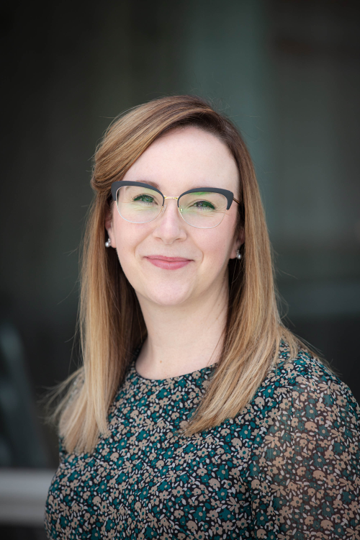
Dr Cox is an Associate Professor and Canada Research Chair in the Department of Molecular and Cellular Biology at the University of Guelph (Ontario, Canada). Dr Cox’s training has centered on studying and combating antibiotic resistant pathogenic bacteria. She has >10 years of experience in laboratories renowned for their research into multidrug-resistant pathogens. She completed her PhD at the University of Leeds (United Kingdom), postdoctoral training with Dr Gerry Wright at McMaster University (Hamilton, Canada), and started her own research group in 2017 at the University of Guelph. Dr Cox’s current research program explores complex aspects of bacterial physiology in combination with cutting-edge drug discovery endeavors to ultimately combat pathogenic bacteria. Specifically, Dr Cox and her group are exploring novel approaches to control bacterial infections by investigating and inhibiting bacterial adhesion to the host. Her lab also studies drug efflux pumps, to gain insight into the substrate specificities, physiological functions, and origins of these transporters, which will inform future drug discovery efforts and antibiotic stewardship.
Dr R. Martin (Marty) Roop II
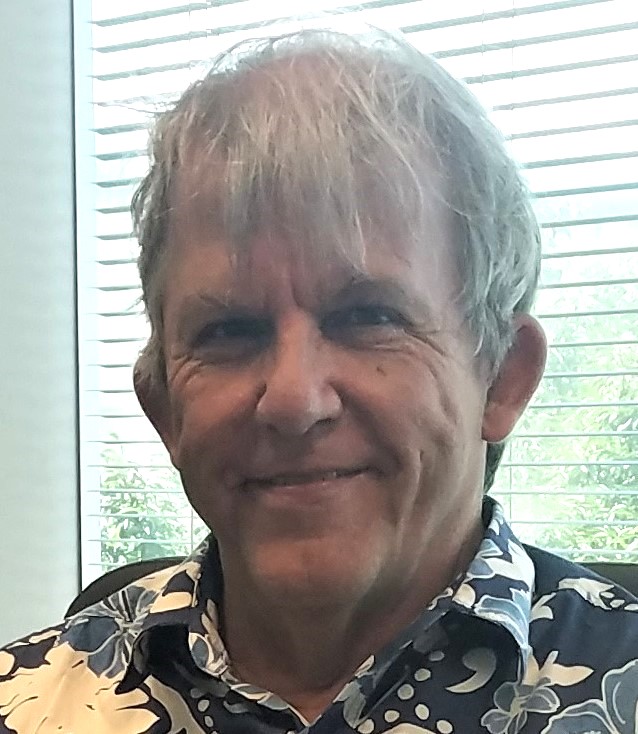
R. Martin Roop II (Marty) obtained his BS and PhD from Virginia Tech and did postdoctoral work at the Virginia-Maryland Regional College of Veterinary Medicine. Following faculty appointments at the University of Arkansas for Medical Sciences and Louisiana State University Health Sciences Center in Shreveport, he relocated his lab to Brody School of Medicine at East Carolina University in 2001 where he presently holds the rank of Professor in the Department of Microbiology and Immunology. Since its establishment in 1988, the Roop lab has employed genetic approaches and cellular and animal models to gain a better understanding of how Brucella strains produce disease in their mammalian hosts.
Dr Mark Lawrence

Dr Mark Lawrence is a veterinary microbiologist specializing in aquatic animal health, especially in bacterial diseases of catfish and other aquaculture species. After earning a PhD in Veterinary Science in 1997 from Louisiana State University, he joined the faculty at Mississippi State University College of Veterinary Medicine. Since 2009 he has been a full professor in the Department of Comparative Biomedical Sciences and received the distinction of William L. Giles Distinguished Professor in 2021. Since 2014, he has been the Director of the MSU Global Center for Aquatic Health and Food Security. He is also the Director of the Feed the Future Innovation Lab for Fish, a 5-year competitively funded USAID cooperative agreement. Dr Lawrence’s primary focus in research has been on bacterial diseases impacting catfish aquaculture in the U.S. and on pathogenesis and detection of the foodborne pathogen Listeria monocytogenes. To support this program, he has served as principal investigator for nine competitively funded grants through the USDA Agriculture and Food Research Initiative. He has also authored or co-authored >130 peer-reviewed publications. His work led to a U.S. patent issued for a live attenuated vaccine for the catfish pathogen Edwardsiella ictaluri and another patent for detection of virulent and avirulent strains of L. monocytogenes. (Photo by Robby Lozano / © Mississippi State University)
Invited Speakers
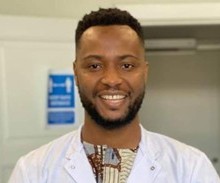
Dr Yaovi M. Gildas Hounmanou
Dr. Yaovi M. Gildas Hounmanou, known as Gildas, is an Assistant Professor of Microbial Genomics at the University of Copenhagen in Denmark, a lecturer-researcher at the University of Abomey-Calavi in Benin, and currently a research fellow at the National Institutes of Health (NIH) in the United States under the African Postdoctoral Training Initiative funded by the NIH, the Gates Foundation, and the African Academy of Sciences (AAS).
For over a decade, Gildas has worked across different countries in Africa, Asia, and South America, applying advanced genomics, metagenomics, and machine learning to investigate antimicrobial resistance in foodborne, waterborne, human, and animal pathogens. His research focuses particularly on climate-sensitive infectious diseases while also contributing to the development of local bioinformatics capacity.
He has successfully secured and managed individual and collaborative grants from organizations such as JPIAMR (EU Commission), IDRC (Canada), IFS (Sweden), DANIDA (Denmark), ESCMID (EU), and the NIH-Gates Foundation fellowship he is currently undertaking. His ongoing research involves developing community-led early warning systems to predict and prevent climate-sensitive disease outbreaks in Benin, using metagenomics-informed data while integrating decentralized sequencing platforms into healthcare and veterinary systems for proactive pathogen discovery.
Gildas has authored and co-authored over 40 peer-reviewed publications and serves as a review editor for several leading journals, including Nature Communications, The Lancet, Microbial Genomics, BMC Genomics, and Applied and Environmental Microbiology (ASM). He has received multiple awards, including the ESCMID “30 under 30” award and recognition as a United Nations Global Talent for SDG3 in 2020. Committed to capacity building in underprivileged settings, Gildas actively mentors and trains the next generation of scientists.
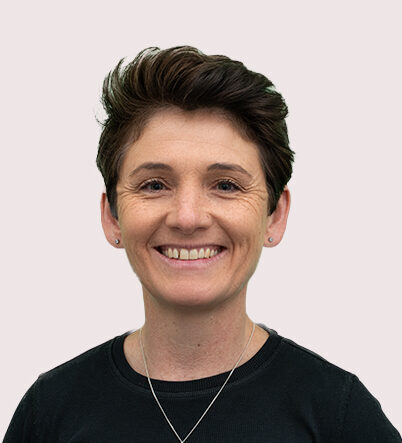
Dr Jaclyn Pearson
Dr Jaclyn Pearson is currently a Lecturer at the School of Medicine at the University of St Andrews and leads a research program that investigates host-pathogen interactions in bacterial gut infections. Previously, Jaclyn held a Viertel Senior Medical Research Fellowship at the Hudson Institute of Medical Research in Melbourne, Australia. Jaclyn’s PhD research, conducted at The University of Melbourne, made significant discoveries on how bacterial pathogens actively evade specific host immune responses to persist and cause disease in the gut and earned her the Chancellor’s Prize and Dean’s Award for Excellence in the PhD thesis. An early career fellowship at the Peter Doherty Institute for Infection and Immunity in Melbourne allowed Jaclyn to continue work on the biochemical mechanisms of bacterial effector proteins She was recruited to Hudson Institute in Melbourne in 2017 and led her own research group within the Centre for Innate Immunity and Infectious Diseases. Jaclyn has won several prestigious awards including the Victorian Premier’s Award for Health and Medical Research (2014) and the L’Oréal for Women in Science Fellowship (2017) and her work has been published in some of the world’s leading scientific journals including Nature, PNAS and Nature Communications. The major focus of Jaclyn’s current research is understanding host responses to invasive multidrug resistant non-typhoidal Salmonella. Drug resistant bacteria are associated with more serious disease outcomes and by studying how these microbes interact with the host immune system, Jaclyn hopes to aid in the development of new treatments for difficult to treat infections.
Past Programs




